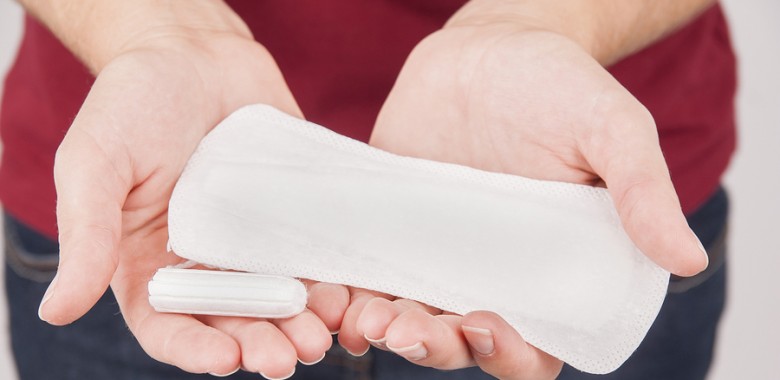“You'd think all women do is clean and bleed,” was the line that resonated with me as I read Gillian Flynn’s psychological thriller Gone Girl. Despite the fact that the shedding of the uterine lining is a natural, normal, and healthy process that half of the world’s population experiences, menstruation is frequently stigmatized. In the article, “Bad blood: the taboo on talking about periods is damaging lives,” Rose George points out that we have “5,000 euphemisms for menstruation, but we still can’t talk about it openly.” Menstruating people are trivialized due to an overall ignorance towards their experiences, from misunderstandings of simple anatomy to the misconception that women are the only people on the gender spectrum who menstruate.
It is important to recognize that menstruation stigma remains prevalent for a number of individuals and not just women. Many individuals who identify as men, nonbinary, or genderqueer also experience the physical effects of menstruation. To recognize this, language is a powerful tool. Uncoupling femininity from menstruation is essential, as it breaks the connection that has been used to make sexist assumptions about women, while at the same time shedding light on the experiences and needs of sexual minorities who menstruate.
Peer Health educators at Healthy McGill Maeve Botham and Mackenzie Gingrich-Hadley emphasized the importance of conversation: Menstruation stigma can be reduced by framing it in a positive light and by using inclusive language in discussions. It is important to remember to avoid phrases, like “feminine hygiene,” and to opt for “menstrual hygiene,” to make sure language is inclusive.
In addition to broadening discourse around the topic, improving accommodation for and increasing awareness of the needs of menstruating individuals are necessary to normalizing menstruation. These steps can relieve some of the negative connotations attached to menstruating individuals, and therefore dismantle the stigma around menstruation. On Oct. 20, the Students’ Society of McGill University (SSMU) passed a motion to provide free menstrual products to students, which brings to light the importance and the daily impact of menstrual health on its students while emphasizing that SSMU supports its students, both emotionally and financially. Additionally, students can purchase not only traditional menstrual products, but also reusable ones such as cloth pads and menstrual cups through the Shag Shop. This not only comprehensively provides for the needs of those who menstruate but, by offering a choice between a variety products, it opens up a discourse about the diversity of menstrual hygiene methods that exist.
When addressing menstruation stigma, the conversation must acknowledge the variety of experiences of menstruation. The conversation must extend not only to women, but to all menstruating people across the gender spectrum. It is important to remember that not all women menstruate and that individuals of all genders can menstruate. In addition to adequate physical accommodation, appropriate and inclusive language is necessary to create a community that supports all menstruating individuals, while forming the platform necessary to eliminate menstruation stigma.








